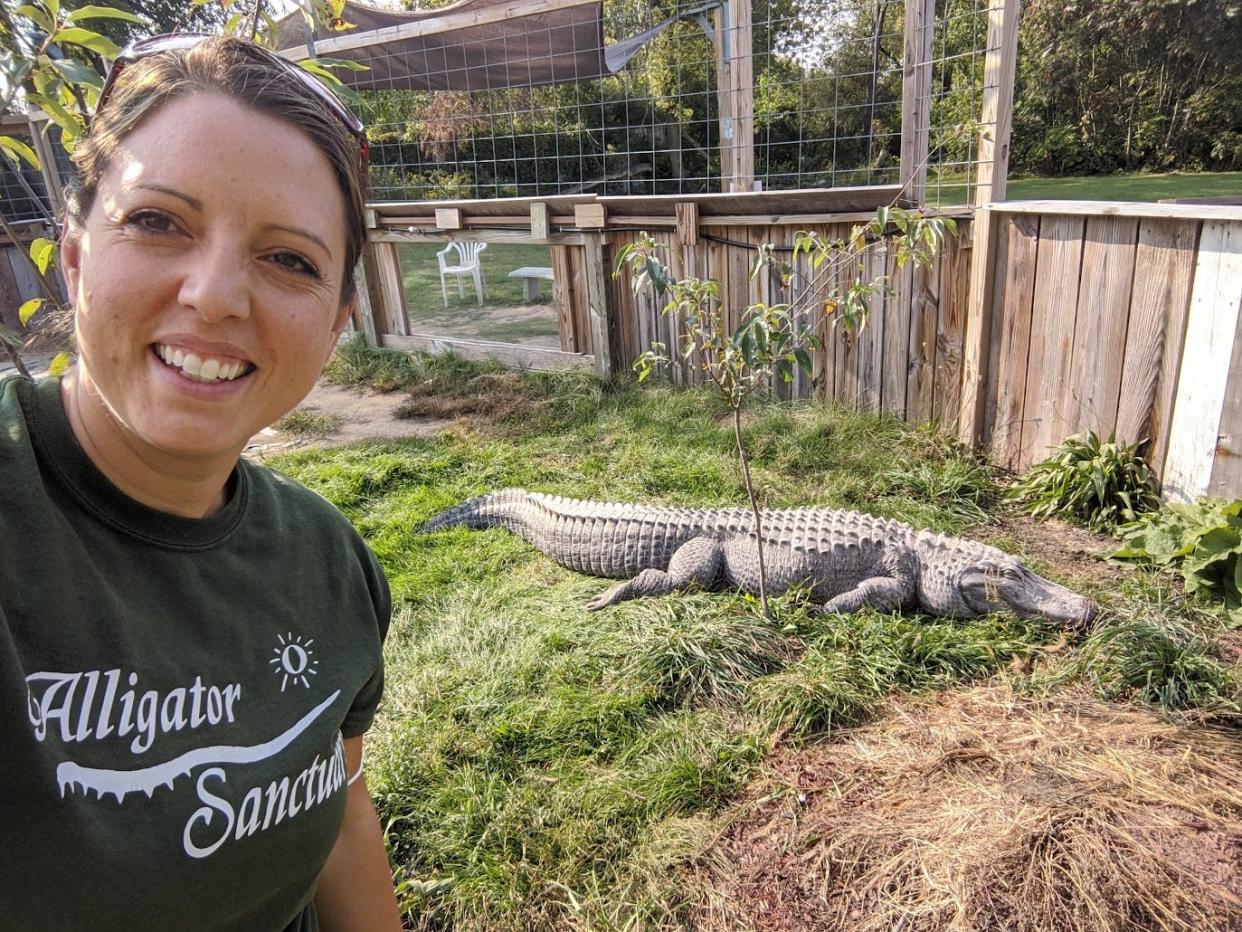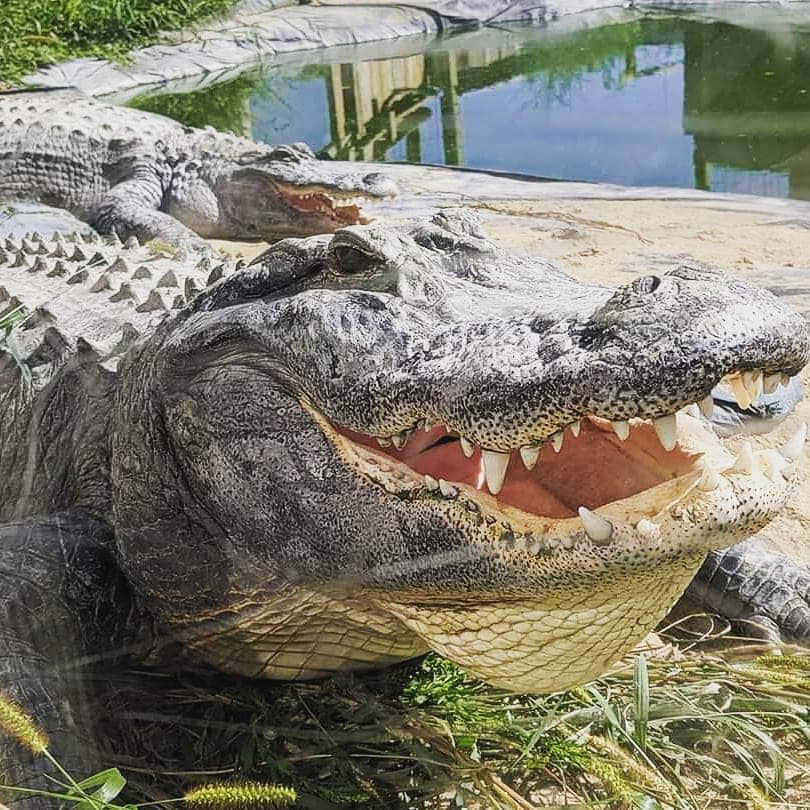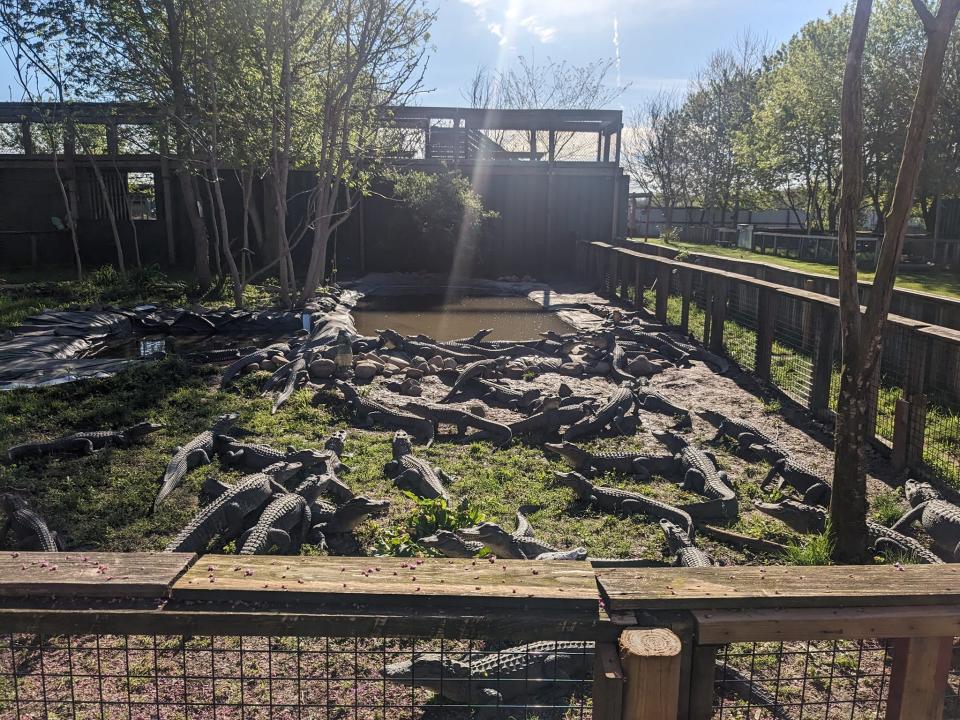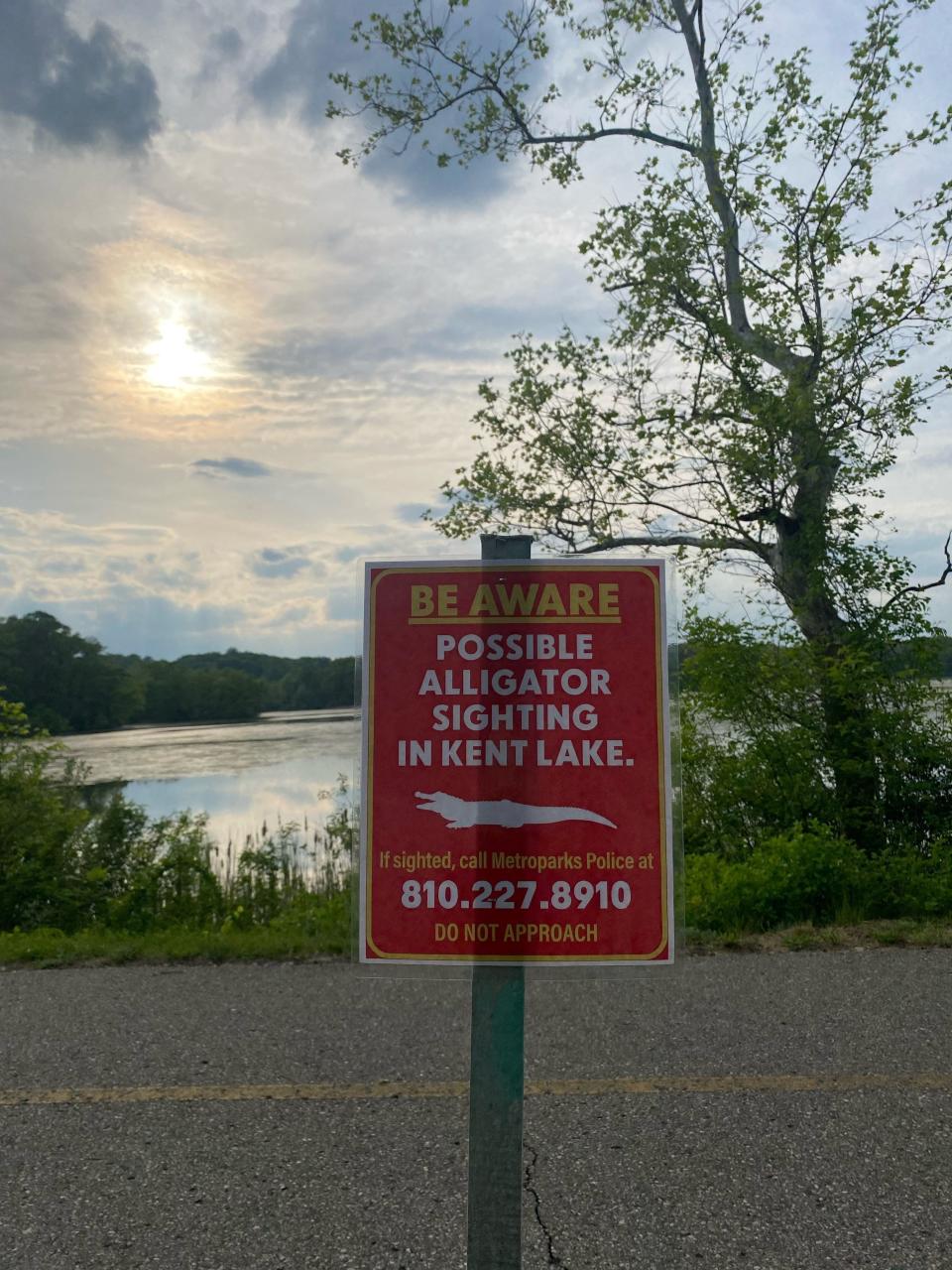See you later, alligator? What we know about the search for a gator in Kensington

MILFORD — It’s a gator guessing game at Kensington Metropark right now.
Is there an alligator hiding out in Kent Lake or not?
Nearly a week after an alligator sighting was reported and a massive search was launched without results, warning signs remained posted Tuesday at the park urging visitors who spot an alligator to call parks police at 810-227-8910.
Parks Communications Specialist Danielle Mauter could provide no answer for when those signs might be removed.
“Signs remain posted in the park and staff are watching as well as encouraging the public to report if another sighting occurs,” Mauter wrote in an email. “So far nothing has been reported and no further sightings have occurred.”
Mauter provided some additional details, sharing that a citizen used the Metropark’s general contact form the evening of Wednesday, May 15, to report the initial sighting of an alligator at Kent Lake. That form was received by staff and acted upon the following morning, May 16. As far as park employees know, the citizen sighted the alligator from shore, not a boat.
When asked if there were photographs or other evidence of the reptile found such as tracks or feces, Mauter responded, “When we receive reports such as this that could pose a safety concern, we treat them seriously for the safety of visitors.”
She could not provide answers for how much cost was incurred for an alligator search that involved multiple agencies and resources, nor who would be responsible for the expense.
Mauter also did not know how long the alligator warning signs would remain on beaches and near park entrances, nor whether any other exotic animals had ever been reported and searched for at Kensington.
Angelina Kelly, director of the Critchlow Alligator Sanctuary in Athens, Michigan, said if there is an alligator in Kent Lake it has only been there for a few weeks at most. It is probably about three- to three-and-a-half feet long and is living its best balmy Michigan life—feeding on an abundance of fish, small turtles, snakes, frogs, birds, and insects.
“There is plenty of food and it’s already 80 degrees in May,” Kelly noted. “It’s loving this if it’s real.”

Park visitors may not be loving it, but Kelly says this potential alligator fears people more than people should fear it.
Alligators see water as a safety zone, can stay under water for long periods of time, and can hang out at the top of water, with only nostrils and eyes visible, for even longer.
This may have hindered a search, particularly one that ended shortly after midnight on May 17.
Kelly said alligators seek heat and light. As the sun rises in the morning, alligators like to come on land and bask. Vibrations from boats, heavy vehicles, and even people walking would drive an alligator into water.
Using a quiet drone might be the best way to find the alligator, Kelly said. Conversely, she suggested several vehicles be brought to the area blaring rap music with heavy bass, which could prompt bellows from an alligator tricked into believing another alligator was in the area.
“Or, if you know a tuba player, put the bell upside down and blow a B flat,” she said.If a gator is found at Kensington, its next and final stop will be at Critchlow Alligator Sanctuary.
“I already spoke to the curator at the Detroit Zoo and we agreed to home it if they do catch it,” Kelly said.
The 4-acre sanctuary located just south of Battle Creek already has the largest collection of alligators in the state - 200, many of whom know their names and listen to commands, including Godzilla, an 11-and-a-half-foot-long beast who came from a pet store going out of business in the Ludington area; Lola, who arrived with health issues including a curved snout, crooked teeth and obesity; and Charlie, who previously lived with dogs in a free-roam home.

The sanctuary, founded by Kelly’s parents in 2008, takes in about 20 alligators per year from around the country, all of them former pets. They are most often around 3-feet long when they arrive, about the size when they outgrow the tanks their owners had them in.
“People buy a 1-foot animal and have a 3-foot tank,” Kelly said. “Now the alligator has grown to the size of the tank and they don’t want to buy something bigger. They say ‘It’s too expensive, I guess we will get rid of the alligator.’”
How they do that varies. Kelly said many of these former pets are found abandoned in lakes and ponds. Some are seized by law enforcement in drug busts, and others are surrendered directly to the sanctuary, with an accompanying fee of $10 per inch, about $360 for the average alligator. The fee often draws protests from people who wonder why they have to pay, but she wonders why they took in a pet they weren’t prepared to commit to for a lifetime—which for an alligator can be 60 to 80 years.
She also notes that $360 will barely scratch the scaly surface of care for that reptile.
At the sanctuary, the animals live on a special diet of food formulated by Mazuri, a company specializing in feed for exotic pets and zoo animals. Visitors to the sanctuary can feed the gators hard biscuits and watch them in shows and training sessions from May 1 to Oct. 1 for an admission fee of $13.95. In the winter, the alligators reside in insulated cargo shipping containers with UV lights inside eight buildings at the property.
It’s a lot of work, and Kelly is grateful for her phenomenal staff at a sanctuary that is nearly at capacity.
It is unclear how many pet alligators are in Michigan as there are no state restrictions on owning or possessing alligators. Ownership is legal and no permit license or registration is required, Jennifer Holton, communications director for the Michigan Department of Agriculture and Rural Development, wrote in an email.
There may be restrictions on ownership of alligators at a local level, and she stresses the importance of contacting the municipality to determine what restrictions are in place. She also notes that "state law prohibits a person from abandoning any animal, including an alligator, without making provisions for their care."
Alligators cannot survive a Michigan winter in the wild, nor can pet alligators be rereleased anywhere, even in a warm climate, Kelly said, as they are too accustomed to humans.
Kelly understands that people’s circumstances may change, but she said people who relinquish any pet - whether it is an alligator, horse, a dog or a cat - should pay a high fee.
“If you aren’t going to care for it for the rest of their life, why have it?” she wonders. “The better educated you are, the better choices you make. You shouldn’t just dump an animal... It’s unfair for the community and for law enforcement that has way better things to do than search for an alligator.”

Contact reporter Susan Bromley at sbromley@hometownlife.com or 517-281-2412.
This article originally appeared on Hometownlife.com: Alligator sighting signs remain at Kensington Metropark in Milford

